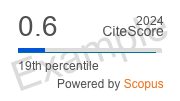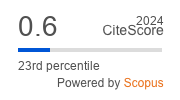IMPACT OF COPING ON MICROSOCIAL RISK FACTORS FOR ADDICTIVE AND MIXED ANXIETY-DEPRESSIVE DISORDERS IN STUDENTS
https://doi.org/10.29001/2073-8552-2018-33-4-125-130
Abstract
The microsocial factors associated with parent family, reference group, and groupmates affect the development of addictive and mixed anxiety-depressive disorders in students. Students, carriers of each of microsocial risk factors, were characterized by specific motives for psychoactive substance use and specific non-adaptive realizing coping associated with social support modules (26.1%) and prognosis of the stress situation development (21.7%). At the same time, the impact of microsocial risk factors might be weakened by adaptive moderating coping, which manifested in the modules of distraction from the stressful situation (20.6% of cases) and the emotional response to the situation (15.7%). Also, in the realizing and moderating copings, the module of rational assessment of a stressful situation (17.4% of cases for realizing coping and 14.7% for moderating coping) was of value.
Keywords
About the Author
I. V. VoevodinРоссия
Cand. Sci. (Med.), Senior Researcher, Associate Professor
4, Aleutskaya str., Tomsk, 634014, Russian Federation
36, Lenin ave., Tomsk, 634050, Russian Federation
References
1. Azbarova A. A., Gofman A. G. Social, psychological, medical and biological features of the development of alcoholism in gender aspect. Narkologiya = Narcology. 2017; 16(6): 59–78 (In Russ).
2. Portnova A. A., Sivolap Yu. P. Substance abuse: A relationship with childhood traumas. Zhurnal nevrologii i psikhiatrii imeni S. S. Korsakova = S. S. Korsakov Journal of Neurology and Psychiatry. 2017; 117(4): 92–95 (In Russ).
3. Kenney S. R., Di Guiseppi G., Meisel M. K., Balestrieri S. G., Barnett N. P. Poor mental health, peer drinking norms, and alcohol risk in a social network of first-year college students. Addictive Behaviors. 2018; 84: 151–159.
4. LaBrie J. W., Ehret P. J., Hummer J. F., Prenovost K. Poor adjustment to college life mediates the relationship between drinking motives and alcohol consequences: A look at college adjustment, drinking motives, and drinking outcomes. Addictive Behaviors. 2012; 37(4): 379–386.
5. Akhmetova O. A., Slobodskaya H. R. Adolescent substance use: Psychosocial risk and protective factors. Bulletin Sibirskogo otdeleniya Rossiyskoy akademii meditsinskikh nauk = The Bulletin of Siberian Branch of Russian Academy of Medical Sciences. 2007; 27(3): 34–40 (In Russ).
6. Slobodskaya H. R., Goodman R., Ryabichenko T. I. Psychososial factors of adolescent emotional and behavioural problems. Psikhiatriya = Psychiatry. 2006; 2(20): 28–36 (In Russ).
7. Voevodin I. V., Bokhan N. A., Abolonin A. F., Belokrylov I. I., Nazarova I. A. Structure, dynamics, and psychological characteristics of substance use motivation among the students of high and secondary school. Obozrenie psikhiatrii i meditsinskoy psikhologii imeni V. M. Bekhtereva = V. M. Bekhterev Review of Psychiatry and Medical Psychology. 2014; 4: 37–42 (In Russ).
8. Belokrylov I. I., Abolonin A. F. Ataractic motivation of substance use among young people. Sibirskiy vestnik psikhiatrii i narkologii = Siberian Herald of Psychiatry and Addiction Psychiatry. 2016; 3(92): 38–43 (In Russ).
9. Fanale C. M., Maarhuis P., Wright B. R., Caffre K. The effect of attitudinal barriers to mental health treatment on cannabis use and mediation through coping motives. Addictive Behaviors. 2017; 69: 35–41.
10. Adan A., Antúnez J. M., Navarro J. F. Coping strategies related to treatment in substance use disorder patients with and without comorbid depression. Psychiatry Research. 2017; 251: 325–332.
11. Alonso Y., Fernandez J., Fontanil Y., Ezama E., Gimeno A. Contextual determinants of psychopathology. The singularity of attachment as a predictor of mental dysfunction. Psychiatry Research. 2018; 261: 338–343.
12. Lugovskaya A. A. Psychometric analysis of the scale of subjectively focused strategies of the modeled diagnostic method of coping behaviour. Psikhiatriya, psikhoterapiya i klinicheskaya psikhologiya = Psychiatry, psychotherapy and clinical psychology. 2017; 2: 207–215 (In Russ).
13. Voevodin I. V., Bokhan N. A. Cognitive-behavioural copingprevention of addictive and affective disorders among the students (New approach to evaluation of irrational cognitions and coping). Obozrenie psikhiatrii i meditsinskoy psikhologii imeni V. M. Bekhtereva = V. M. Bekhterev Review of Psychiatry and Medical Psychology. 2015; 2: 42–50 (In Russ).
14. Mellentin A. I., Skøt L., Nielsen B., Schippers G. M., Juhl C. Cue exposure therapy for the treatment of alcohol use disorders: A metaanalytic review. Clinical Psychology Review. 2017; 57: 195–207.
15. Epstein E. E., McCrady B. S., Hallgren K. A., Gaba A., Litt M. D. Individual versus group female-specific cognitive behavior therapy for alcohol use disorder. Journal of Substance Abuse Treatment. 2018; 88: 27–43.
Review
For citations:
Voevodin I.V. IMPACT OF COPING ON MICROSOCIAL RISK FACTORS FOR ADDICTIVE AND MIXED ANXIETY-DEPRESSIVE DISORDERS IN STUDENTS. Siberian Journal of Clinical and Experimental Medicine. 2018;33(4):125-130. (In Russ.) https://doi.org/10.29001/2073-8552-2018-33-4-125-130
JATS XML




.png)





























